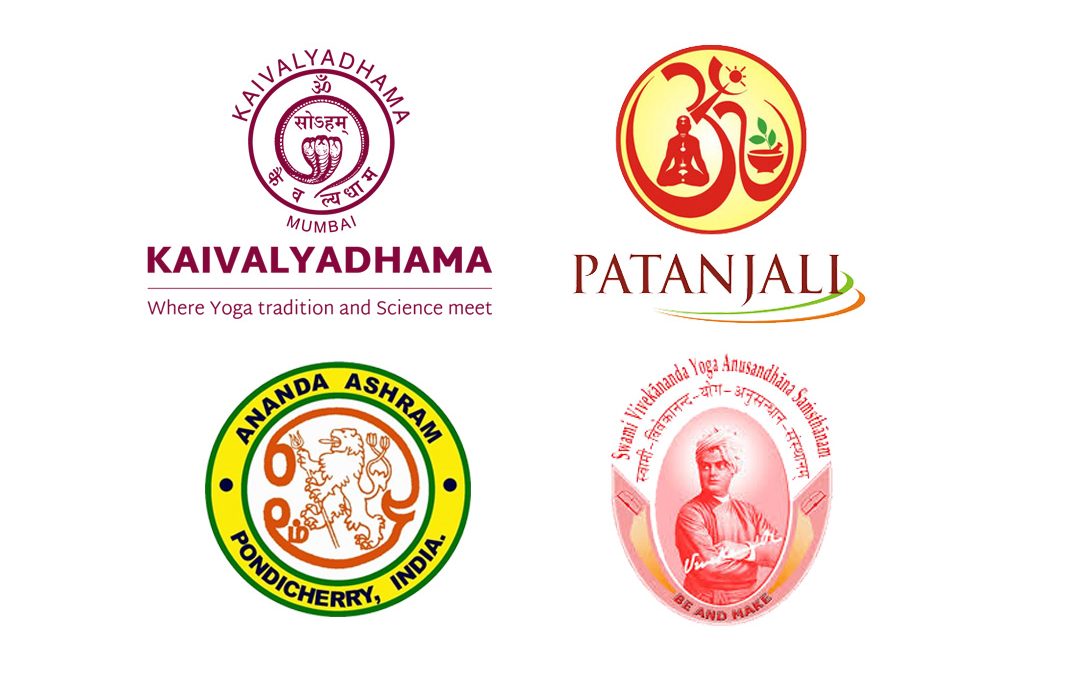The Indian Yoga Association (IYA), Uttar Pradesh Chapter, played a significant role in the Women Empowerment Seminar organized by the Institute Innovation Council (IIC) at SD College of Commerce. The event was a resounding success, bringing together experts and dignitaries to discuss critical issues surrounding…
Research is extremely important to support different approaches to health care. In the recent past, Yoga has been gaining lot of attention as Yoga Institutes, reseachers, scholars have started offering substantive clinical research evidence. In this issue, Indian Yoga Association brings to you the Research Papers published by our Member Institutes and other Institutes or individuals on Benefits of Yoga in for a healthy heart or while suffering from heart diseases
International Centre for Yoga Education and Research (ICYER)
Immediate Cardiovascular Effects of a Single Yoga Session in Different Conditions
Authors: Ananda Balayogi Bhavanani, Meena Ramanathan, Madanmohan
Published In: Alternative & Integrative Medicine 2(9):144
Published On: November 2013
Abstract
Aim and objective: This retrospective review of clinical data was done to determine cardiovascular effects of a single yoga session in normal subjects as well as patients of different medical conditions. Methods: Data of 1896 patients (1229 female, 633 male and 34 transgender) with mean age of 36.28 ± 12.64 y who attended yoga therapy sessions at CYTER between November 2010 and September 2012 was used for analysis. Heart rate (HR), systolic (SP) and diasto lic pressure (DP) had been recorded using non-invasive blood pressure (NIBP) apparatus before and after 60 minute yoga sessions at CYTER and indices like pulse pressure (PP), mean pressure (MP), rate-pressure product (RPP) and double product (DoP) were derived from recorded parameters. Participants were undergoing appropriate yoga therapy protocols as per their individual condition while normal subjects had a general schedule of practice. Typical yoga sessions included simple warm ups (jathis and surya namaskar), breath body movement coordination practices (kriyas), static stretching postures (asana), breathing techniques (pranayama), relaxation and chanting.
Results: There were statistically significant (p < 0.001) reductions in all the studied cardiovascular parameters following the yoga session (Tables 1 & 2). The magnitude of reductions differed in the groups, it being more significant in those having hypertension (n = 505) and less significant in those having endocrine/skin (n = 230) and musculoskeletal (n = 120) conditions. It was moderately significant in the normal subjects (n = 582) as well as patients having psychiatric (n = 302) and respiratory (n = 157) conditions.
Conclusion: There is a healthy reduction in HR, BP and derived cardiovascular indices following a single yoga session. The magnitude of this reduction depends on the pre-existing medical condition as well as the yoga therapy protocol adopted. These changes may be attributed to enhanced harmony of cardiac autonomic function as a result of coordinated breath-body work and mind-body relaxation due to yoga.
Patanjali Yogpeeth
An evaluation of the ability to voluntarily reduce the heart rate after a month of yoga practice
Author: Shirley Telles, Meesha Joshi, Manoj Dash, Raghuraj Puthige
Published In: Integrative Physiological and Behavioral Science 39(2):119-25
Published On: April 2004
ABSTRACT
The study aimed at determining whether novices to yoga would be able to reduce their heart rate voluntarily and whether the magnitude of reduction would be more after 30 days of yoga training. Two groups (yoga and control, n = 12 each) were assessed on Day 1 and on Day 30. During the intervening 30 days, the yoga group received training in yoga techniques while the control group carried on with their routine. At each assessment the baseline heart rate was recorded for one minute, this was followed by a six-minute period during which participants were asked to attempt to voluntarily reduce their heart rate, using any strategy. Both the baseline heart rate and the lowest heart rate achieved voluntarily during the six-minute period were significantly lower in the yoga group on Day 30 compared to Day 1 by a group average of 10.7 beats per minute (i.e., bpm) and 6.8 bpm, respectively (p < .05, Wilcoxon paired signed ranks test). In contrast, there was no significant change in either the baseline heart rate or the lowest heart rate achieved voluntarily in the control group on Day 30 compared to Day 1. The results suggest that yoga training can enable practitioners to use their own strategies to reduce the heart rate, which has possible therapeutic applications.
Swami Vivekananda Yoga Anusandhana Samsthana
Yoga Module for Heart Disease
Published In: Journal of Mahatma Gandhi Institute of Medical Sciences
Published On: January 2015
Author: Shukla Isha, Sudheer Deshpande, Tikhe Sham Ganpat, Hongasandra Ramarao Nagendra
Introduction: Patients with heart disease (HD) such as congestive heart failure (CHF) have clinically significant depression at a rate 2- to 3-times higher than those of the general population, and depression creates barriers to successful CHF treatment (may be more frequent adverse clinical events and hospitalizations, twice the risk of mortality). Patients with coronary artery disease (CAD) (coronary heart disease [CHD]) who suffer a myocardial infarction or undergo coronary artery bypass grafting often develop depression (16-20%), [2-5] and those with depression and CAD have a diminished quality of life, an increased rate of cardiac-related morbidity, and premature mortality.
The CAD is thought to be the cause of CHF in nearly 65% of patients. Moreover, CHD is the major cause of early morbidity and mortality in most developed countries. Secondary prevention aims to prevent repeat cardiac events and death in people with established CHD. Lifestyle modifications play an important role in secondary prevention. Yoga has been regarded as a kind of physical activity as Department of Yoga and Management Studies, Swami Vivekananda Yoga Anusandhana Samsthana University (Prashanti Kutiram), Bengaluru, Karnataka, India.
Role of Yoga in Cardiac Disease and Rehabilitation
Author: Guddeti, Raviteja R. MD; Dang, Geetanjali MD; Williams, Mark A. PhD; Alla, Venkata Mahesh MD
Published In: Journal of Cardiopulmonary Rehabilitation and Prevention (Volume 39 – Issue 3 – p 146-152)
Published On: May 2019
Purpose:
Cardiovascular disease continues to be the leading cause of morbidity and mortality around the world. Yoga, a combination of physical postures (asana), breathing exercises (pranayama), and meditation (dhyana), has gained increasing recognition as a form of mind-body exercise. In this narrative review, we intended to review the emerging evidence assessing the physiologic and clinical effects of yoga on the cardiovascular system and the potential role of yoga as a component of comprehensive cardiac rehabilitation.
Methods:
We searched PubMed, Google Scholar, Embase, and Cochrane databases for literature related to cardiovascular effects of yoga from inception up until 2017.
Results:
Yoga has been shown to have favourable effects on systemic inflammation, stress, the cardiac autonomic nervous system, and traditional and emerging cardiovascular risk factors.
Conclusions:
Yoga has shown promise as a useful lifestyle intervention that can be incorporated into cardiovascular disease management algorithms. Although many investigators have reported the clinical benefits of yoga in reducing cardiovascular events, morbidity, and mortality, evidence supporting these conclusions is somewhat limited, thereby emphasizing the need for large, well-designed randomized trials that minimize bias and methodological drawbacks.
















